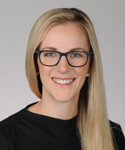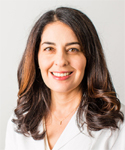 Is Work–Life Integration Within Reach for Rheumatologists?
Is Work–Life Integration Within Reach for Rheumatologists?
SAN DIEGO—Burnout in medicine has led many in the rheumatology profession and healthcare systems struggling to retain their staff to pay increased attention to work–life balance. In a session titled Work–Life Integration for the Rheumatology Workforce during ACR Convergence 2023, experts discussed a different way to approach work and life to avoid burnout.
Integration

Dr. Marvin
Whitney Marvin, MD, pediatric critical care physician and co-director of the Pediatric Physician Well-Being Program at Medical University of South Carolina (MUSC), Charleston, prefers to focus on work–life integration.
“Balance invokes a binary opposition between work and life, where one is in competition with the other,” she said. By contrast, integration is about synergy between work and career, home and family, health and well-being—integrating work and life to complement and support each other and allow space for both.
“Why do we care about this?” Dr. Marvin asked. Because it directly affects burnout and engagement.
Dr. Marvin is principal investigator for a comprehensive initiative at MUSC, supported by the Duke Endowment and conducted in collaboration with the South Carolina Hospital Association. The initiative seeks to evaluate and build a thriving hospital workforce by transforming workplaces, with MUSC as the incubator. MUSC will pilot, test and evaluate the program for other hospitals in the state.
What Is Important?

Dr. Yazdany
Jinoos Yazdany, MD, chief of the Division of Rheumatology, University of California San Francisco, explored how a productive relationship between work and non-working life may affect the practicing rheumatologist. She described herself as a woman, immigrant, mother of two, wife, daughter, sister, researcher and clinician who tries hard to integrate all these aspects of who she is into work and life. However, she has suffered from burnout and has not always achieved the optimal work–life balance she seeks.
Dr. Yazdany highly values nightly dinners with her family. Thus, she does not accept appointments in the evenings, even if that means missing important networking and social opportunities. She also zealously protects her two to three weekly yoga classes and saves her Fridays for writing papers and grants.
The research literature says burnout is common and rising; more than half of physicians report symptoms. A Medscape survey cited by Dr. Yazdany found rheumatology’s burnout rate—at 46%—is in the middle of medical specialties. However, the survey found important gender differences in rheumatology, with 59% of women and 38% of men affected by burnout.1


